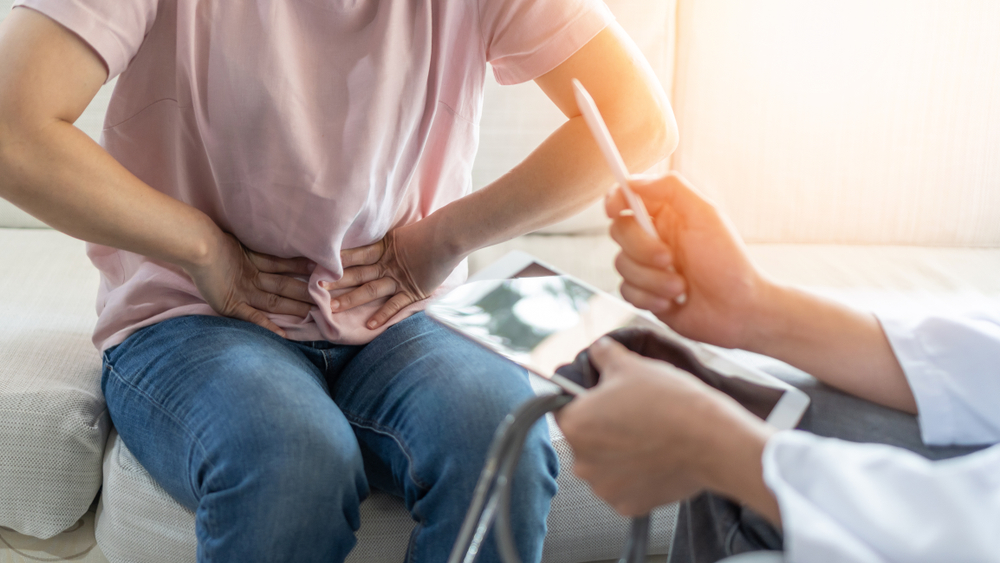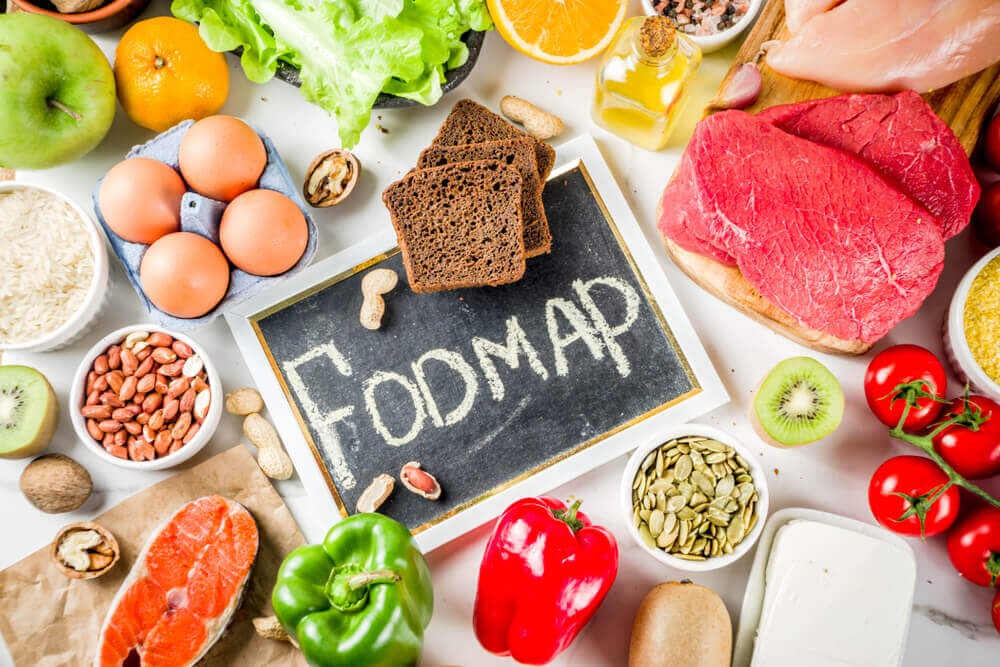Irritable bowel syndrome (IBS) is an unpleasant health disorder that has been affecting more and more people. Its symptoms include digestive problems, such as abdominal pain, diarrhea, constipation, but also bloating. Due to the latter problem, people who suffer from it feel not only physical pain, but they are also insecure about their bodies and have a lower level of self-esteem, which additionally emphasizes the effects of this modern problem.
Thankfully, there are several ways to deal with IBS bloating or even prevent it. This article offers some tips and general information on IBS and bloating that will help you understand this condition better.
IBS 101 – What Is Irritable Bowel Syndrome?
Irritable bowel syndrome or IBS is a common condition that affects the digestive system and causes abdominal cramps and pain, diarrhea, constipation, and bloating. It is a chronic condition which means it requires long-term care and treatment. The symptoms can vary in their severity and duration. They can last from a few days until multiple months.

The symptoms can be linked to various foods, stress, family history, and others.
Luckily, only a small number of people are faced with more severe symptoms, and the majority learns how to successfully deal with them by changing their way of life, especially by balancing and adjusting their nutrition to their condition. Of course, it is also important to accept other healthy habits as well – primarily physical exercise and avoiding stress.
Why Are People with IBS Often Bloated?
People with IBS often report having a bloated stomach, especially in the evening. The situation might get quite extreme, requiring them to change into loose-fitting clothes to minimise the discomfort throughout the day.
Contrary to popular belief, the cause for IBS bloating does not necessarily seem to be excess wind, although the exact reason is not clear. The main one is believed to be erratic propulsion of contents through the bowel due to disorganised peristaltic contractions. The propulsion can cause sudden, explosive elimination of stools, or can delay any elimination, which results in bloating.
Problems with defecation may cause a sudden, explosive stool excretion or postpone the excretion (elimination) of the content, which eventually results in bloating. The answer to the question “whether IBS causes bloating” is, unfortunately, “yes”. However, we can give you some tips on how to deal with this symptom more easily.
Unfortunately, there is no cure for IBS but bloating can be quite successfully managed or even prevented by avoiding common triggers and changing your diet.

What Foods Trigger IBS Bloating?
There are certain foods to avoid if you are dealing with bloating. Even though the best diet for IBS bloating might require some extra work and time, it is worth the pain as it can help you minimise the symptoms.
An important word to remember if you are dealing with IBS problems is FODMAPs, which stands for fermentable oligosaccharides, disaccharides, monosaccharides and polyols. Simply put, a low FODMAP diet focuses on limiting foods rich in certain types of carbohydrates, as they are not easily absorbed by the small intestine. Such foods include most dairy products, fruits like apples and cherries, legumes, wheat and rye, as well as sweeteners.
How to Reduce IBS Bloating or Get Rid of It?
The nutrition with low FODMAP mentioned in the previous text can serve as good prevention for solving problems with IBS. However, if you would like to help yourself in some other ways – whether by going easy on your digestion if you are expecting stressful events or by additionally decreasing discomfort – follow the tips below.
Try laxatives
The most effective treatment for bloating caused by IBS is to avoid constipation. Bloating often gets worse if your stool is irregular. To encourage bowel movements, it is extremely important to be physically active on a regular basis, and different natural laxatives can also be of help. One of them is Donat, natural mineral water that works on the osmosis principle. Due to its unique combination of minerals, especially sulphates, it absorbs the water from the intestinal wall which increases the volume of the intestine content, and magnesium additionally relaxes the bowels and facilitates the transfer and excretion from the body.
Get moving
If you want to eliminate bloating caused by IBS quicker, try working out (even if doing sports is not one of your favorite hobbies). The exercise will accelerate the bowel movements and it will also help manage other symptoms more easily.

Physical exercise is also a very good preventive measure, especially for all those who mostly sit at their workplace. If we sit for a longer time, most probably we will be even more bloated.
Add peppermint
Peppermint oil has long been known as a quick relief for stomach problems.
If you suffer from IBS, massage into your stomach skin some peppermint oil or simply have a cup of hot mint tea. Capsules with peppermint oil are also a good and natural remedy for IBS and bloating.
Apply heat
Many people who suffer from IBS alleviate their symptoms by placing something warm on their stomach, such as a bottle with warm water or they just have a warm bath.
Avoid chewing gum
If you feel stressed due to bloating, do not reach for chewing gum to calm down. Swallowing air during chewing can additionally exacerbate and increase the bloating. Therefore, people suffering from IBS should always eat and drink slowly and chew their food well.
Even though there is no medication that entirely eliminates bloating caused by IBS, it can be prevented by eating properly and adjusting one’s way of life. Moreover, following certain tips and recommendations you can get from your doctor, could greatly facilitate life with this chronic condition. By being disciplined and following advice from this article, you can effectively limit and alleviate bloating, regain your lost self-confidence and be able to enjoy your daily activities again.
Check which problems we can solve and prevent and how to properly drink Donat to for it to be maximally effective.
Frequently Asked Questions
1. What is irritable bowel syndrome or IBS?
IBS is a chronic disease that might cause abdominal cramps and pain, constipation, diarrhea, and bloating. The symptoms can last for days or even months and they require long-term treatment. In most cases the disease can be treated by adjusting one’s diet and more serious symptoms are not that common.
2. Why does irritable bowel syndrome cause bloating?
The experts believe that bloating is a consequence of incorrect functioning of peristalsis, i.e., contraction of intestinal muscles that move the bowel content through the intestine. In such case the bowel movement can be accelerated or slowed down, and the latter causes gas and bloating.
3. Is there a cure for IBS?
Unfortunately, there is no cure for IBS, but the disease can be effectively controlled, or the symptoms might even be prevented in case of adjusting one’s diet.
4. What does FODMAP mean and why is this acronym so important for all those suffering from irritable bowel syndrome?
The acronym stands for fermentable oligosaccharides, disaccharides, monosaccharides, and polysaccharides. Those are foodstuffs rich in those carbohydrates that body has more problems absorbing. Such foodstuffs include dairy products, apples, pears, legumes, rye, and sweeteners.
5. How to avoid tension caused by IBS?
Besides physical activity and FODMAP diet, some things that also might help include laxatives, applying heat to your abdomen, and avoiding chewing gum. Doctor’s orders should also be followed, and one’s lifestyle has to be adjusted to effectively avoid the symptoms of irritable bowel syndrome.
Choose chapter:






